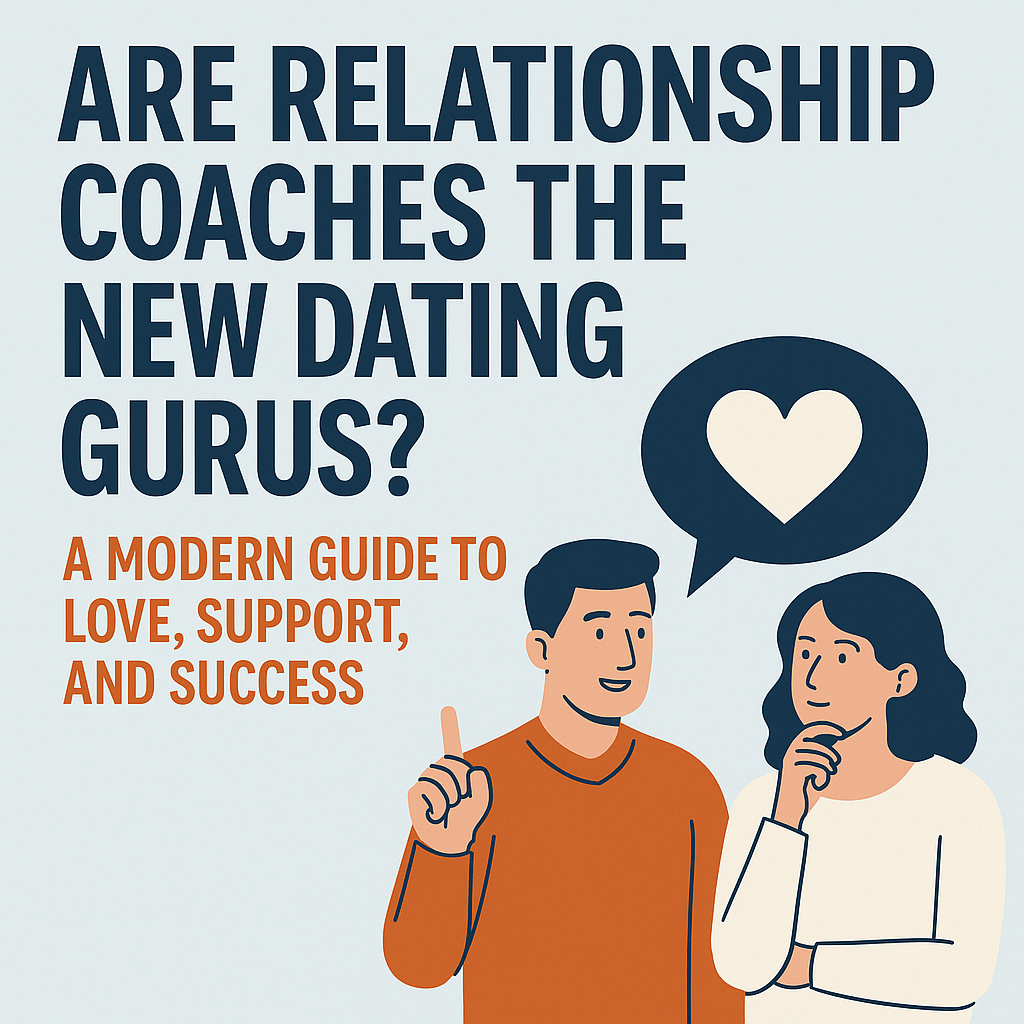
Introduction
Dating isn’t what it used to be. Apps, ghosting, and evolving relationship norms have made it harder than ever to navigate love confidently. In response, more people are turning to relationship coaches—professionals who offer support, guidance, and structure in a romantic world that often feels chaotic. But are they really different from the dating gurus of the past, or are they just a new version of the same advice in a more polished package? In this article, we’ll break down what relationship coaches do, why they’re in demand, how they compare to traditional dating experts, and whether they’re worth your time—and money.
What Is a Relationship Coach?
A relationship coach is a professional who helps individuals and couples build stronger, healthier relationships. Unlike therapists, who often focus on healing past trauma, or dating coaches, who typically concentrate on finding a partner, relationship coaches cover a broader spectrum. They help clients with communication skills, emotional regulation, attachment patterns, and long-term relationship planning.
Key aspects of what a relationship coach offers:
- Goal setting for personal and relationship growth.
- Conflict resolution strategies.
- Accountability in dating or relationship habits.
- Emotional intelligence and communication development.
While some coaches are certified through programs like the International Coaching Federation (ICF) or hold backgrounds in psychology, others build their practice on experience, charisma, and online followings. High-profile names like Matthew Hussey and Esther Perel have contributed to the legitimacy and popularity of the field, often blending coaching with speaking, writing, or podcasting.
Why Are People Turning to Relationship Coaches?
There’s a growing cultural shift toward personal development in every aspect of life—including love. More people are seeking professional help in navigating relationships not because they’re broken, but because they want to be better.
Here’s why coaching is becoming so popular:
- Digital dating fatigue: Swiping culture leaves many feeling burned out and disconnected.
- Delayed milestones: People are marrying later, prioritizing self-growth before settling down.
- Mental health awareness: Therapy has reduced stigma, paving the way for other forms of emotional support.
- Practical, action-oriented support: Coaching focuses on real-time strategies, not just reflection.
Top 5 Reasons People Hire a Relationship Coach:
- To break negative dating or relationship patterns.
- To learn how to communicate better with a partner.
- To rebuild trust after infidelity or conflict.
- To regain confidence after a breakup or divorce.
- To attract the right kind of partner intentionally.
According to Google Trends, searches for “relationship coach near me” have steadily increased over the last five years, especially among millennials and Gen Z.
Relationship Coaches vs. Dating Gurus: What’s the Difference?
You’ve probably seen dating gurus on YouTube or social media—charismatic, often polarizing, dispensing bold advice about how to “win” at love. Relationship coaches, on the other hand, tend to take a more nuanced, client-centered approach.
Key Differences:
| Feature | Dating Gurus | Relationship Coaches |
|---|---|---|
| Focus | Tips for attraction & dating success | Long-term relationship and self-growth |
| Background | Often informal, media-based | May be certified, trained in psychology |
| Delivery Style | Entertaining, sometimes prescriptive | Coaching sessions, individualized plans |
| Goals | Short-term results | Sustainable, long-term emotional health |
| Accountability | Low (DIY-style) | High (ongoing coaching, structured work) |
While gurus might offer flashy results, relationship coaches provide depth and structure—something many people find more helpful when building lasting connections.
How to Choose the Right Relationship Coach
Not all coaches are created equal. With coaching becoming more accessible online, it’s essential to vet anyone you’re considering working with.
What to Look For:
- Credentials: Look for certifications (ICF, CTA, or equivalent), or relevant degrees in psychology or counseling.
- Transparency: Clear pricing, session structures, and client reviews.
- Personal Fit: Coaching is a personal experience—chemistry and trust matter.
Red Flags to Avoid:
- Guaranteed results (“I’ll get you married in 90 days”).
- High-pressure sales tactics.
- Lack of clear coaching framework or methodology.
Questions to Ask in a Consultation:
- What’s your background and training?
- How do you structure your sessions?
- Have you worked with clients in situations similar to mine?
- What outcomes should I expect?
- What’s your policy on confidentiality?
The Future of Love: Is Coaching the New Norm?
As therapy, coaching, and wellness merge, relationship coaching is quickly becoming a normalized part of the dating and relationship landscape. Forward-thinking dating apps are even starting to integrate coaching options or partnerships.
What’s Ahead:
- AI-powered coaching tools that analyze conversations for compatibility feedback.
- Hybrid models combining online courses, live coaching, and support communities.
- Increased demand from men, a demographic that’s traditionally underrepresented in coaching.
Experts predict that relationship coaching will become as common as personal training—something people invest in to improve their quality of life, not just fix a problem.
Conclusion
So, are relationship coaches the new dating gurus? In many ways, yes—but they’re more than that. They represent a shift from passive consumption of advice to active, personalized work on ourselves and our relationships. Whether you’re single and stuck, in a partnership that needs recalibration, or just someone who wants to grow in love, a relationship coach might be your most valuable resource. In a world where connection is both more possible and more complicated than ever, having someone in your corner can make all the difference.



